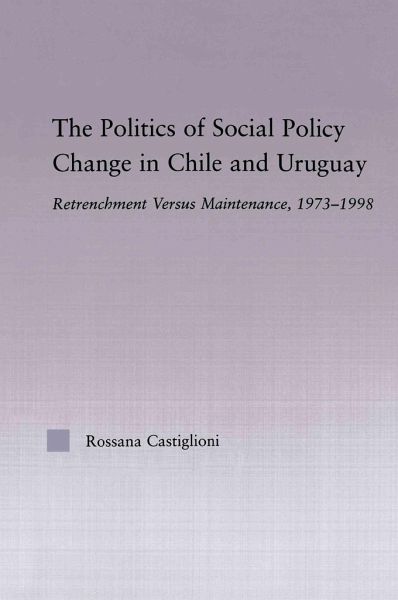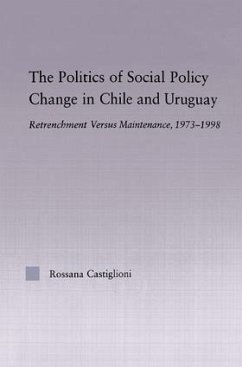
The Politics of Social Policy Change in Chile and Uruguay
Retrenchment versus Maintenance, 1973-1998
Versandkostenfrei!
Versandfertig in 1-2 Wochen
59,99 €
inkl. MwSt.
Weitere Ausgaben:

PAYBACK Punkte
30 °P sammeln!
This work explains the causes of social policy reform in Chile and Uruguay in the areas of health care, pensions and education. Until the 1970s, Chile and Uruguay shared striking similarities.














